October 2021

October 2021
After working for years as a conductor in Europe and the US, Eun Sun Kim recently became the music director for the San Francisco Opera―the first female conductor to be named to that position in the history of the opera company.
Written by
Robert Lauler
Photo courtesy of
Verismo Communications
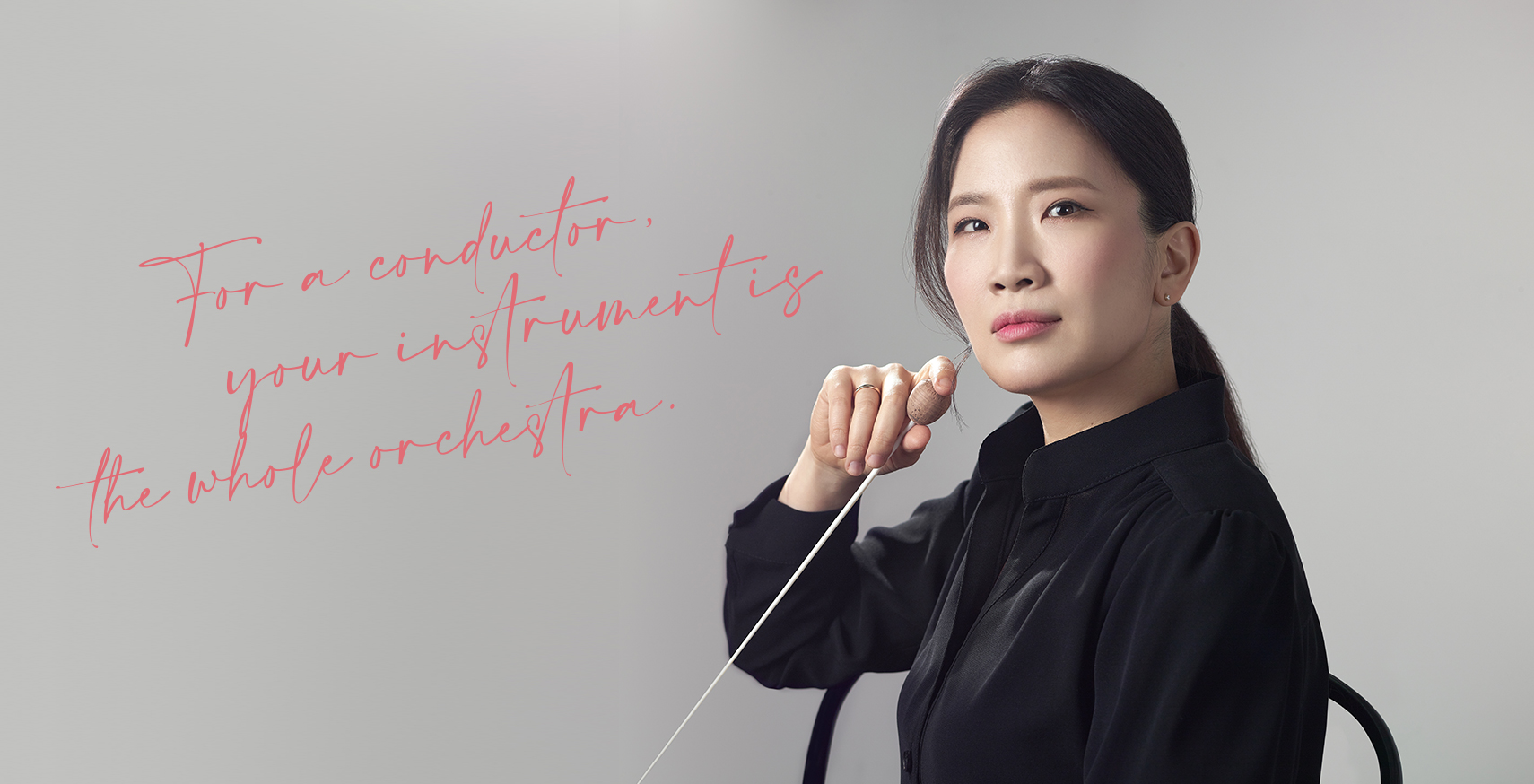 © KimTae-hwan
© KimTae-hwan
Eun Sun Kim’s path to becoming a conductor started in music school when she was studying to become a composer. Her professor at the time observed her working with some singers and recommended she give conducting a try. “I tried it out of curiosity, with no expectation that this would become my life’s path,” she recalls.
Now 40, Kim worked for many years in Europe as a conductor until recently settling in San Francisco to serve as the music director for the San Francisco Opera. After winning the 2008 Lopez-Cobos International Opera Conductors Competition, she gave her first performance at the Frankfurt Opera in 2012, marking a turning point in her career. The opera was put together in a rush―without even a rehearsal―but came together beautifully nonetheless. “The most important thing is to develop a sense of trust with the musicians as quickly as possible so that you can create art together in the moment,” she says.
Kim believes that each musician is an expert in their instrument, and in a tenured orchestra, the longstanding players may have performed a piece many more times than a visiting conductor has. “I place a high value on mutual respect, and the connection that can flow organically from that. After all, we are all creating something together,” she says.
Kim explains that conductors have their own interpretations of the pieces they perform. “It’s important that they be able to clearly communicate their musical ideas―with their hands, not just with their words. For a conductor, your instrument is the whole orchestra. If you are lucky, you have chances to work with orchestras directly so you can learn by doing,” she says. Kim also notes that learning from more experienced conductors is very important to get better as a conductor.
In her case, she feels very lucky to assist some of the world’s best conductors, including Kirill Petrenko, music director of the Berlin Philharmonic. She is now helping younger conductors improve their skills. “I work extensively with the Adler Fellows of San Francisco Opera, who are apprentices in the early stages of their careers. I try to offer the same sort of mentorship that was helpful to me, answering questions about the industry and discussing musical insights,” she says.
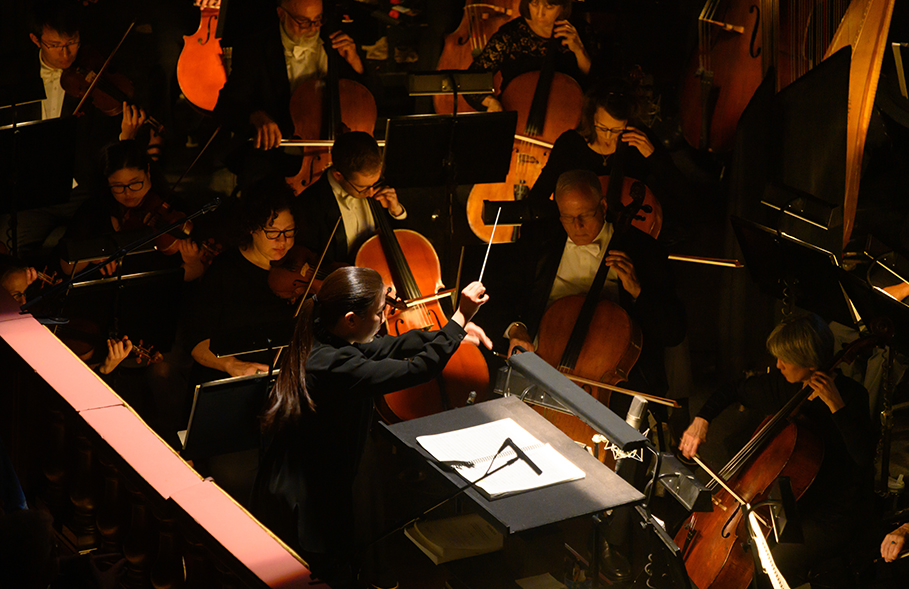 The San Francisco Opera performs ‘Rusalka’ in 2019. © Kristen Loken
The San Francisco Opera performs ‘Rusalka’ in 2019. © Kristen Loken
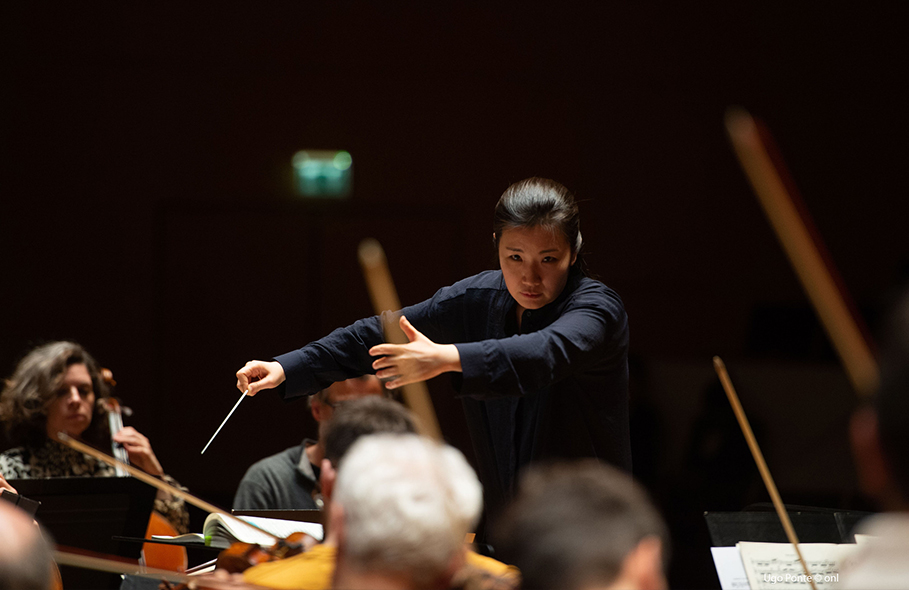 Kim conducts the Orchestre National de Lille. © Ugo Ponte
Kim conducts the Orchestre National de Lille. © Ugo Ponte
Kim has performed all over the world, which has given knowledge into how best to share her talent as a conductor across different cultures. “Every country has their own traditions, and this holds true in music as well,” she says. “For example, in German-speaking countries, you can often use abstract imagery or metaphor to evoke a musical gesture in fairly terse language. When I work in English-speaking places, I find that I have to be simultaneously much more concrete in describing what I’m looking for, and a bit more gentle in how I ask for that.”
She places importance on learning the languages of the places she performs. “When you’re working in a new place, it’s crucial to have at least a basic understanding of culture and language there,” she says. “It builds credibility with colleagues and shows that you are willing to meet them where they are.” According to her, language is inextricable from the music itself. “I like to research a composer’s life and the society in which they live (or lived) in their native language, so I can steep myself in the sounds and rhythms of their world. It can lend new insights to even very familiar pieces of music,” she says.
Preparing for a performance is no easy task, and Kim has her own simple yet effective routine to get ready for her concerts. She studies a score alone for many months before stepping into the room on the first day of rehearsal, and waits until the last few minutes before a performance to put on her concert clothing. As far as audiences are concerned, Kim says, “A little advance preparation can allow you to discover more in the moment of the performance and learn a bit about what inspired the composer, or reading through a quick synopsis of an opera plot might help you form your own ideas about the piece.”
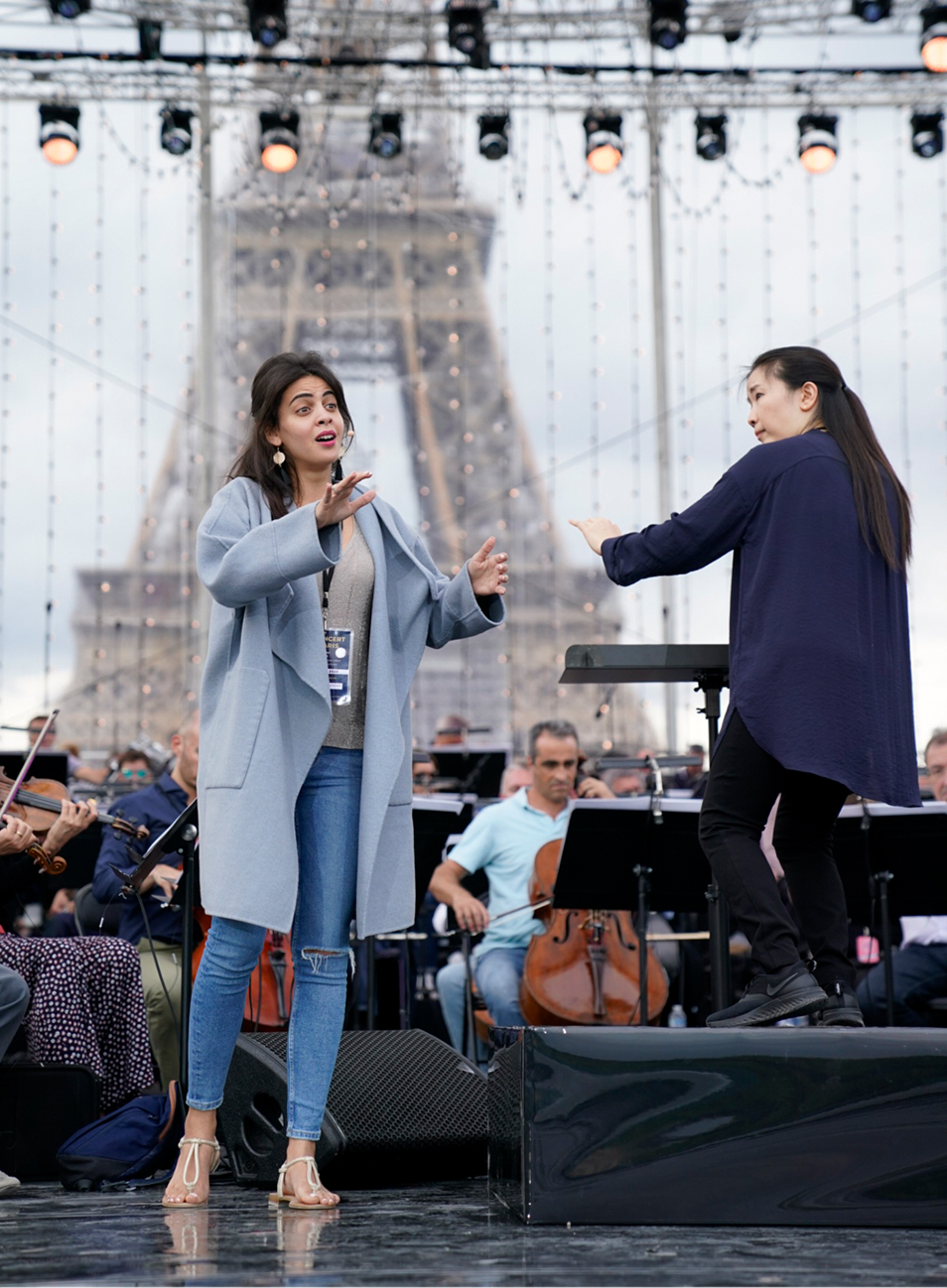 Performers rehearse for Le Concert de Paris 2020. © Christophe Abramowitz
Performers rehearse for Le Concert de Paris 2020. © Christophe Abramowitz
‘Much of what makes us human
hasn’t changed dramatically since
the time of Mozart or Verdi.’
Kim’s term at the San Francisco Opera began in August of this year. When asked what kind of music she would like to perform, she says it is important for classical music to continue to evolve so that it can resonate with the local community. “Some of those works will be beloved standard repertoire pieces that have captivated audiences for centuries, and some of those will be new works with modern inspirations or storylines,” she says. “Any of these can allow audiences to see themselves reflected on stage―so much of what makes us human hasn’t changed dramatically since the time of Mozart or Verdi.”
Despite her success as a conductor, Kim remains modest. She is aware of what many people may think when they see her―a “small, young Korean woman on the podium” in her words―but she believes that it is best for her to focus on artistic excellence. Kim does not place too much emphasis on her status as a “rising female conductor”; rather, she is buoyed by the belief that she and other conductors must “earn the respect of the people in front of us on any given day.” In fact, rather than having people focus on her, Kim would prefer that they “treasure a memory of a particularly moving performance and what it meant to them.”
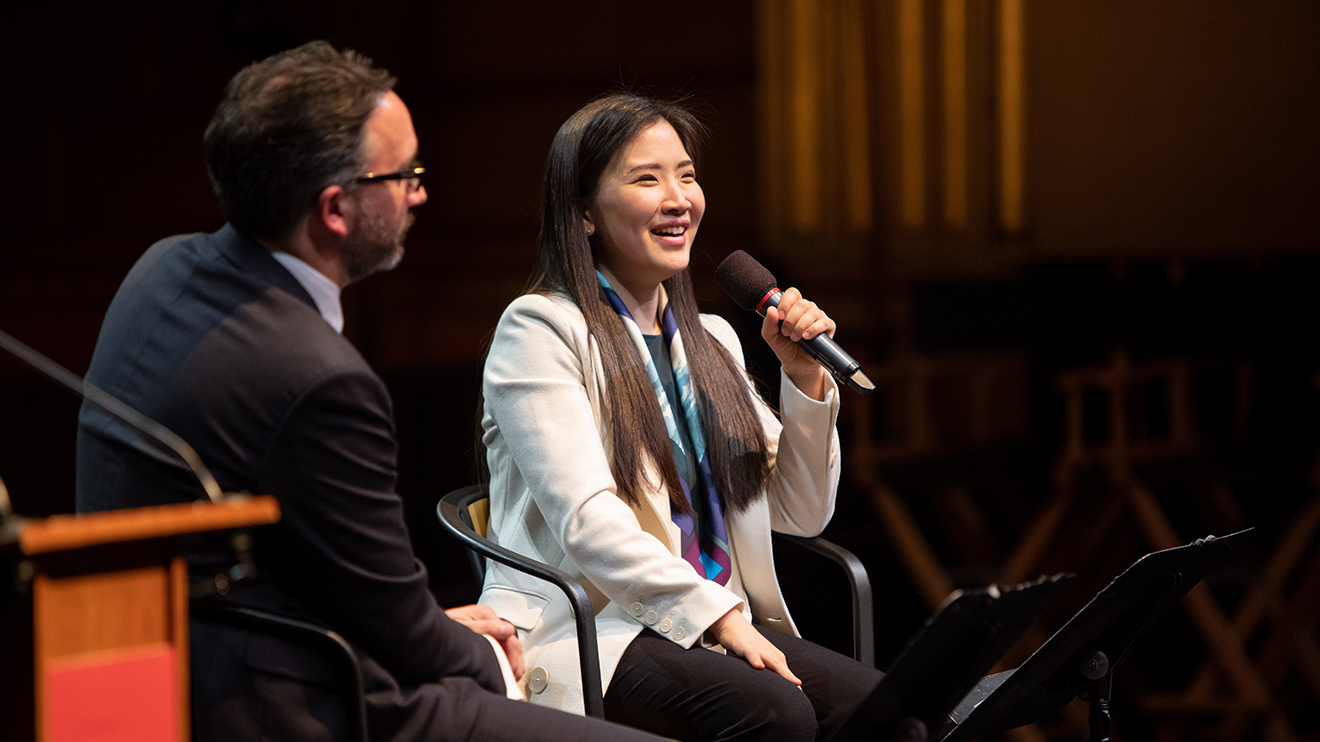 Kim introduced as music director of the San Francisco Opera. © Matthew Washburn
Kim introduced as music director of the San Francisco Opera. © Matthew Washburn